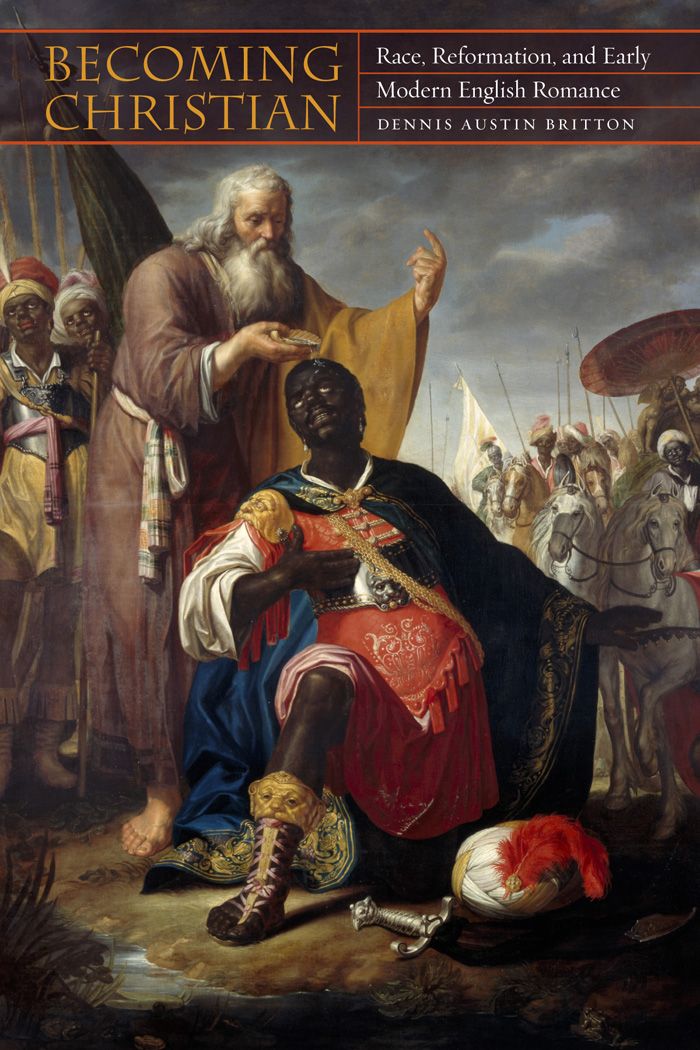Becoming Christian
Race, Reformation, and Early Modern English Romance

This book can be opened with

Becoming Christian argues that romance narratives of Jews and Muslims converting to Christianity register theological formations of race in post-Reformation England. The medieval motif of infidel conversion came under scrutiny as Protestant theology radically reconfigured how individuals acquire religious identities.
Whereas Catholicism had asserted that Christian identity begins with baptism, numerous theologians in the Church of England denied the necessity of baptism and instead treated Christian identity as a racial characteristic passed from parents to their children. The church thereby developed a theology that both transformed a nation into a Christian race and created skepticism about the possibility of conversion. Race became a matter of salvation and damnation.
Britton intervenes in critical debates about the intersections of race and religion, as well as in discussions of the social implications of romance. Examining English translations of Calvin, treatises on the sacraments, catechisms, and sermons alongside works by Edmund Spenser, John Harrington, William Shakespeare, John Fletcher, and Phillip Massinger, Becoming Christian demonstrates how a theology of race altered a nation’s imagination and literary landscape.
...this is an important book, showing in no uncertain terms how profoundly the construction of Protestant religious difference impacted England's relations not just with other Europeans, but with the populations across the globe that it would increasingly encounter as a Christian nation in the age of empire.——Barbara Fuchs, SEL: Studies in English Literature
“Becoming Christian is an exciting study that offers a theological account of race and racialization in early modern England, and explores the way this theology of race informs the cultural imagination.”
Dennis Britton's excellent Becoming Christian uncovers with rigor, clarity, and breadth a hitherto neglected, protoracialist component to early modern Christianity.——Modern Philology
Above and beyond its substantial contribution to early modern literary studies, Becoming Christian gives the effort of conversion and the work of baptism new meaning and momentum. As such, this book is not only about romance: it also participates in romance, a literary form that draws its extraordinary resilience from its capacity to serve as a tool for living.——Julia Reinhard Lupton, The Spenser Review
Britton’s book serves as a model of intersectional approaches to early modern race, animating connections among skin color, bloodline, faith, and geography...The journey is exhilarating and Britton a remarkably enlightened guide.
“What is strikingly original in Britton’s work is the underlying insistence on unearthing the ways English theologians and writers made use of a religious motif –baptism– as a coded racial marker.”

